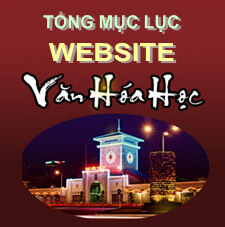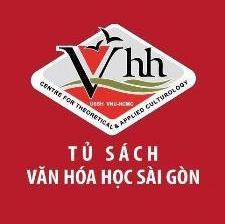The peoples and nations in the orient
Although peoples in this region achieved high civilizations in ancient times, they engaged in industrialization and modernization later than Western countries. Only from the 20th century onwards, particularly in its latter half, did they begin to step on the path of industrialization and modernization. At present, there lies in front of them a Western model of development with its great achievement as well as its constraints and contradictions.
There was a long period when under the overwhelming influence of Western civilization, not a few people in Eastern countries got a complex of inferiority and even denied the values of traditional national cultures. On the plane of action, they adopted a stereotype of Western-type civilization for their own nations, the consequence of which appeared to be not much of a success. Although these countries made progress in terms of technology and economic growth, they are beset with many social upheavals, while their long-standing cultural identity could not be preserved nor developed further.
Facing such realities, in recent decades many people in the Orient have begun to review the path of development taken by their countries. Will countries in the East have to necessarily follow the Western model of development when engaged in industrialization and modernization? What development path is there which can ensure both economic growth and social stability and the preservation of national cultural identity? We believe that all development needs to ensure heredity and continuity. All communities need to move forward from their own existing traditions. That is the reason why elements of tradition must be considered as the basis of development. Traditional values encompass many aspects, including local knowledge.
Local knowledge is non-school knowledge. It is the experience accumulated by man through a long process of activity aimed at adaptation to and transformation of the natural and social environment, to meet material and spiritual needs. Such knowledge subsists and develops mainly not through studying and books but is usually disseminated and handed down, and enriched further through memory and oral diffusion by such media as proverbs, phrases, sayings, day-to-day professional practice performed by farmers, handicraft workers, fishermen and stockbreeders.
Categories of local knowledge
1. Knowledge of nature and environment
2. Knowledge of human beings
3. Knowledge of production
4. Knowledge of management of society and community
All nations on our planet accumulate extremely rich knowledge of their own environments. It is the knowledge of weather, land, rivers and seas, of various breeds of animals and plants. In ethnology, there have taken shape such disciplines as ethnobotany, ethnozoology, ethno-meteorology. For instance, we have inherited things that have been handed down to us since time immemorial, such as ballads on the various rainy seasons in the year and on other meteorological phenomena.
The Mang ethnic group has inherited in the same way a type of agricultural calendar, under which each sequential farming operation such as cutting trees, slashing and burning, sowing, weeding, harvesting, is closely linked with the appearance of various wild flowers in the forests. The Viet and Mong (Meo) ethnic groups have ballads handed down from generation to generation verbally which carry wisdom on how to select varieties of buffalo, horse, pig, chicken. Those ethnic groups engaged in slash-and-burn farming have a similar heritage of knowledge of classification of types of forests and strains of plants, and this knowledge helps them to select appropriate plots of land for growing rice or some subsidiary crop.
Like many other Asian countries, we have since long accumulated local knowledge of the human system, of keeping fit methods and curing diseases. However, since the Westerners penetrated our country and disseminated Western medicine, folk medicine was neglected and underestimated. Only in the last few decades, at a time the world followed a tendency to discover and develop the Oriental world, has this traditional medicine been given due consideration. At present, besides Western medicine hospitals, hospitals of Eastern medicine or of combined Western and Eastern medicine exist.
We also have a separate tradition of keeping fit and medical treatment based on the fundamental Oriental concept of the universe, to the effect that there is an interaction between yin and yan, mutual support between them, that the human system is a small universe and that diseases affecting it are a sign of loss of balance. Therefore, it is necessary though alimentation, medication including creating mental effects, to re-establish the yin-yan balance in order to regain good health. A dozen years ago, the Eastern physician Do Tat Loi managed to collect and classify some 1,500 medicinal plants. As early as in the 18th century, the eminent physician Le Huu Trac, in his work entitled Nu Cong Thang Lam, collected and analysed the curing effects of more than 200 different types of food and foodstuffs.
The knowledge of production is even more abundant and varied. For ethnic groups in Vietnam, the main production is rice farming, therefore the richest knowledge is also to be found in this area. The Viets living in the lowlands have reviewed all of their knowledge of farming and expressed it in crystallized form in the four words ‘water, fertilizer, assiduity and seeds’ (in Vietnamese: nuoc, phan, can, giong). As knowledge comes from experience, the more you are advanced in age, the more you are experienced in farming, and the Vietnamese phrase ‘Lao Nong Tri Dien’, which conveys that idea, serves as evidence.
Let us take the example of the slash-and-burn agriculture practised by the minorities living in mountainous areas or on the high plateau. In order to adapt themselves to and preserve the forest environment, and achieve productivity in growing rice and subsidiary crops, this population has created a system of cultivation with such techniques as rotation of crops, laying land fallow and inter-cropping. That is a ‘self-support’ technique (neither improving land by means of adding fertilizer, nor causing soil improvement), and also a technique that helps to maintain balance in one’s favour (a balance between man and the environment). This is really an achievement of the traditional slash-and-burn farming highly appreciated by the agronomists working with the International Rice Institute. The question is how to assimilate and upgrade this knowledge of traditional farming techniques to serve modern agricultural production in the tropical and sub-tropical countries.
Knowledge of society and of community plays a very important role; it ensures the stability and invulnerability of traditional social relations. This is no longer pure knowledge but on its basis, there come into being rules that all must comply with.
With the Viet people, who have a relatively high level of development, each village has its regulations (village management rules). At present we have collected and kept in the archives some thousands of such documents.
With the Thai ethnic group, each of their Muongs (the Thai minority is divided into 16 Muongs) has a different custom (in their own language: Hit Khong ban Muong) which is recorded in the ancient Thai script. With these they have established rules governing relations of ownership, marriage and family as well as rituals and customs.
For those minorities without a written language, customary laws exist in the form of oral rhymes which establish rules of material and moral life and of social relations. We have so far collected dozens of such customary laws, each consisting of tens of thousands of verses. This is cultural heritage which is at the same time material that gives insights into the traditional society, and also serves as a standard for social administration by the ethnic minorities.
What was mentioned above is just a small part in comparison to the intellectual heritage handed down by our forefathers. Increasingly conscious of its great value, Vietnamese scientists have availed themselves of the encouragement and financial support of the State and over the past many years they have conducted programmes of research on and application of local knowledge to serve the livelihood of man in modern society. They have collected traditional knowledge on folk medicine, encouraged and promoted a combination of Western and Eastern medicine, the growing of herbs in family gardens and on the community’s land, organized health clubs for elderly people.
Efforts are being made to initiate the studying of old village regulations for developing new self-management rules for villages, towns and cities. Our Institute has got an assignment from the State to conduct a study and collect village regulations of traditional villages of various ethnic groups living in Vietnam. In the initial stage, we have collected some thousands of these regulations and dozens of oral laws. They are the scientific basis for us to make our own contribution to the management of rural areas and to administrative reform in those areas.
In the agricultural aspect, we have studied folk experience of those farming systems which are appropriate to the various ecosystems in Vietnam, particularly the slash-and-burn farming system on steep hillsides, trying to introduce elements of modern techniques to update the traditional ones, in order to ensure both farming productivity and the preservation of the natural environment as well.
Local knowledge and social development
Local knowledge is the knowledge that has not gone beyond the level of experience, institutions and impressions, drawn from actual activities of man himself, and exactly for this reason it is of practical value.
To a modern society, in my opinion, this local knowledge does not lose any of its scientific and practical value. More than that, this people’s knowledge which is perpetuated among the people, put into practice by the people in daily life, unlike modern knowledge which originates from inventions and discoveries by individuals or collectives, and only through experimentation, education and diffusion, can they reach the masses. These are two types of knowledge, two forms of information with different features, but are mutually supportive and complementary.
In order to preserve and bring into play local knowledge so that it becomes a factor in the development of modern society, we would like to recommend sponsorship by Unesco of the following activities:
Through varied forms, to educate people to overcome a complex of inferiority and the psychology of undervaluing traditional knowledge handed down by forefathers, merely tailing after Western knowledge and technology which is still rather widespread in Afro-Asian countries, in the Third World, to restore the value and pride of nations as regards their own intellectual heritage.
To encourage the collection, study and diffusion of local knowledge, to include such knowledge in the curriculum of schools, the greater part of which is actually based on Western knowledge. This is also a way of handing down the intellectual heritage from one generation to the next.
To encourage combination of Western and traditional knowledge, to use achievements of modern knowledge and technology to shed light on, elucidate and update the scientific and practical value of traditional knowledge. To create conditions for the people to inherit the intellectual heritage from their forefathers and at the same time continue to develop it creatively.
In short, local knowledge is an intellectual heritage and is national cultural identity as well. Only those nations that have learnt to prize it and bring it into play can take the path of industrialization and modernization while preserving their own identity, the original features of their nations.
Source: Integration of Endogenous cultural dimension into Development (1997)
Edited by Baidy Anath Saraswati
Prologue by Francis Childe



























